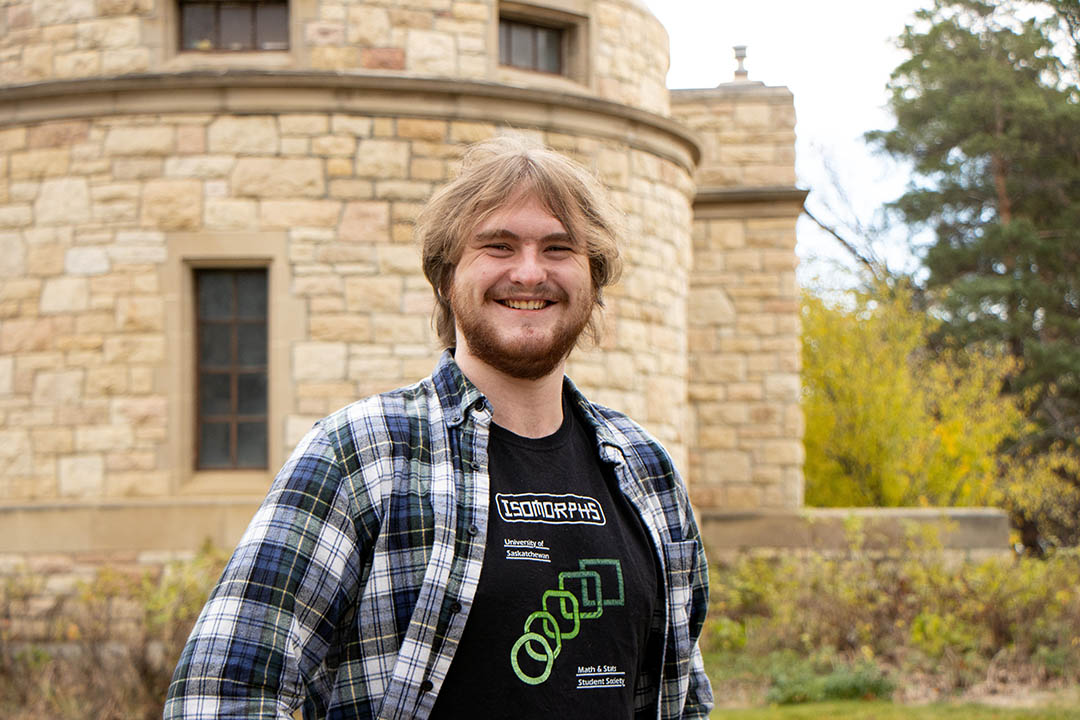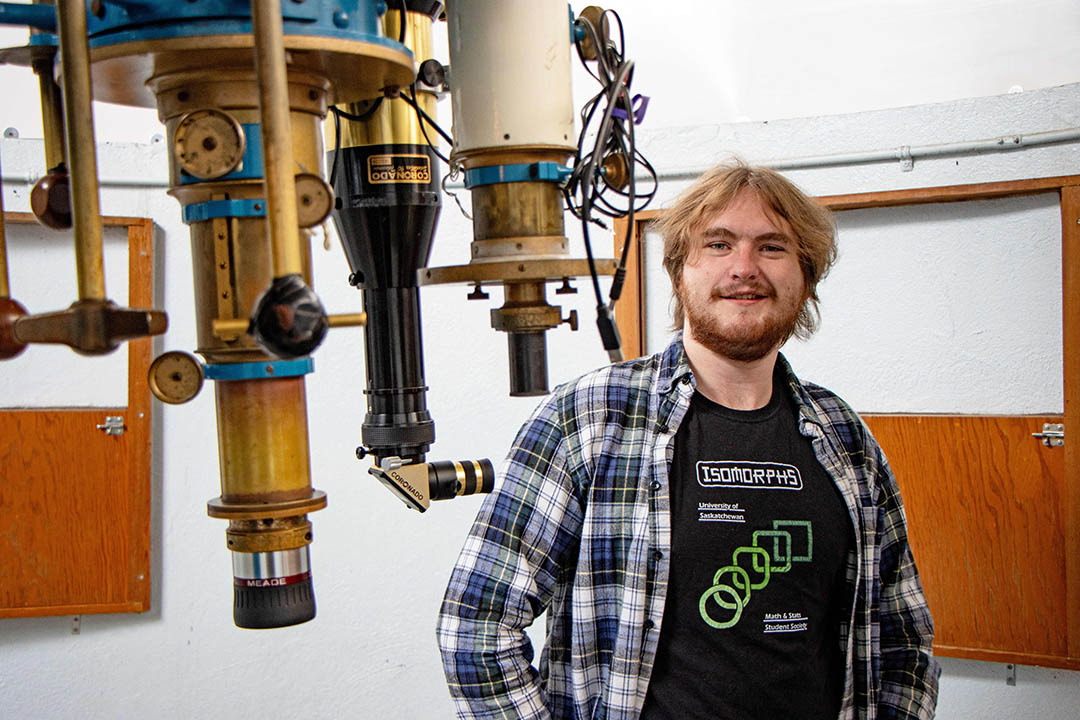
University Medal recipient breaks down the fear of math
USask Arts and Science graduand to receive University Medal in the Sciences at Fall Convocation.
By Kristen McEwenOne University of Saskatchewan (USask) student aims to make math less intimidating for other students.
“Just like most things, practice makes things easier,” said USask mathematical physics student Cole Dutchyn. “But for math, it’s a little bit different.
“It’s not necessarily that people find it challenging or need to work harder at it. There’s this latent fear built-in from young ages about mathematics—and what it means, and how difficult it is, and how scared you should be of it.”
Dutchyn will be graduating from the College of Arts and Science with a Bachelor of Science degree in mathematics with high honours and a Bachelor of Science degree in Mathematical Physics. Dutchyn will also receive the University Medal in the Sciences during the 2025 USask Fall Convocation on Wednesday, Nov. 12 at Merlis Belsher Place.
As internal vice-president of the Math and Stats Student Society (MS^3), Dutchyn worked with the rest of the student group to create a positive atmosphere for math and statistics students at USask.
“(The student group) gets a lot of people with similar mindsets, similar interests together, with a goal of helping other people appreciate and understand mathematics,” he said. “That’s something I was really passionate about, and I thought was a really great part of the academic and student experience here.”
A big part of making math less scary is breaking down the fear, Dutchyn said.
“Once people aren’t afraid of it anymore, people seem to enjoy it more and do substantially better.”
Dutchyn said he thoroughly enjoyed taking math classes at USask. He initially started his university journey majoring in engineering at the University of British Columbia during the COVID-19 pandemic.
“I was working on my schoolwork from Saskatoon, attending UBC,” he said. “Not that the university was not great, it was more studying from home and the program I didn’t appreciate. But I really did enjoy the math class I was taking, which was an honours math class.”
After classes resumed in-person, Dutchyn transferred to USask to be close to home and family in Saskatoon.
While Dutchyn didn’t pursue engineering, he maintained his interest. While working part time in the Plasma Physics Laboratory for physics and engineering physics professor Dr. Michael Bradley (PhD), he learned that one of the telescopes in the university’s observatory needed repair. He volunteered to complete some electrical design work—rewiring—to repair the Duncan telescope, the observatory’s nearly 100-year-old solar telescope.
Most of the work involved the Ash-Dome automation system, Dutchyn said. This included several large motors, two electrical control boxes—wifi and zigbee radio enabled—conductor rails to bring power into the dome, and a winch pulley system and safety limit switches.
“I really didn’t know how much work I was signing up for, but I’m glad I did,” he added.

In his spare time, Dutchyn also volunteers to build set pieces for musical theatre shows for the Saskatoon Summer Players and PPL R PPL Productions.
“To not be creative is a real problem—especially mathematics,” he said. “So much of math ends up almost feeling like art—it needs to be creative in some way. You have to be able to improvise and create a new idea without relying on previous stuff.”
Dutchyn has already started his master’s degree with graduate supervisor and quanTA centre director Dr. Steven Rayan (DPhil), focusing on geometry, algebra, and analysis. He has also applied for the Rhodes Scholarship, with the intention of one day studying at the University of Oxford.
Dutchyn also hopes to eventually pursue a PhD degree and become a researcher and teacher.
His pieces of advice to other students: read the textbook for a deeper understanding of course material, ask questions, and get involved in undergraduate research.
“For students who are interested in going further in academia beyond just doing an undergraduate degree ... reach out to the faculty who you’ve enjoyed their classes with and see if they have a position available to do undergraduate research,” he said. “A lot of the time they’re very receptive of this kind of inquiry.”

